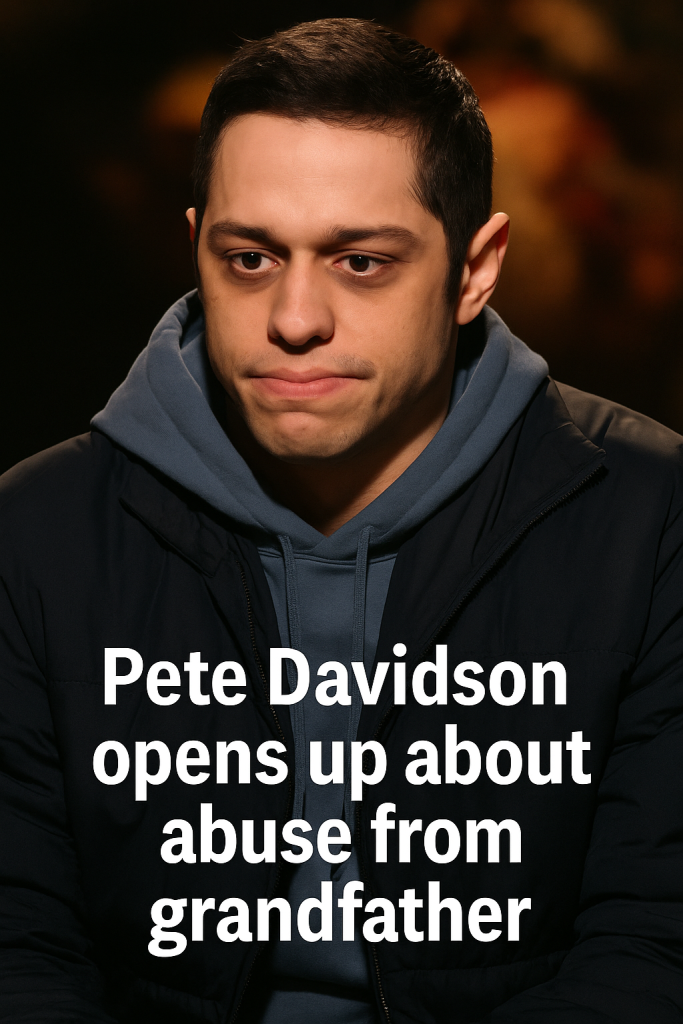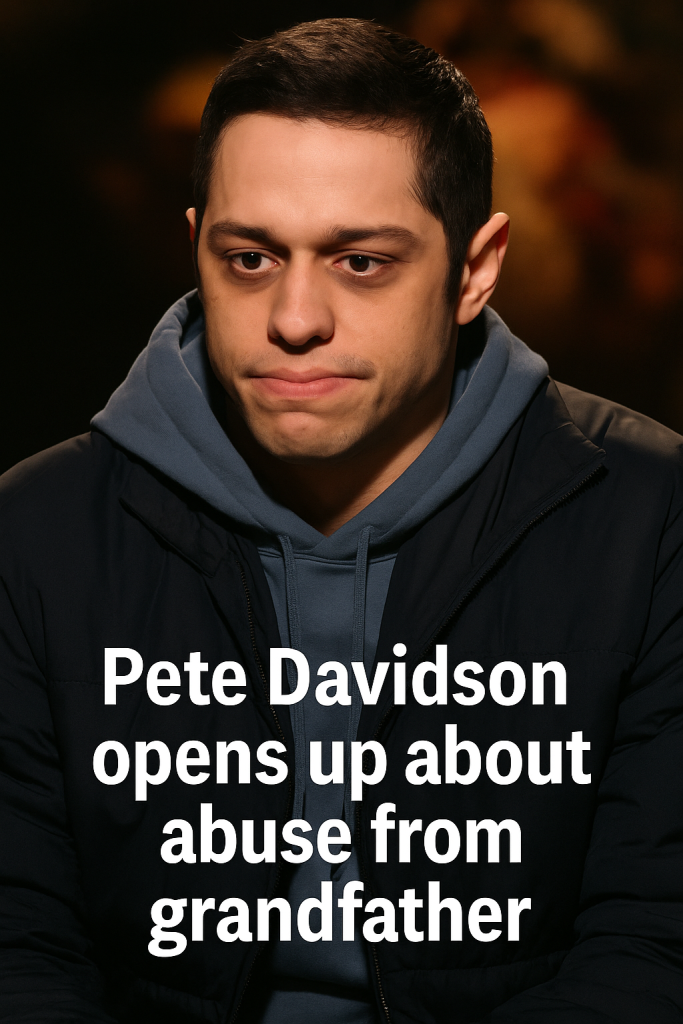Comedian and actor Pete Davidson recently made headlines after candidly discussing a dark and deeply personal chapter of his life: the abuse he endured from his grandfather. In a startling revelation, Davidson expressed that he is, in his own words, “thrilled” to see his grandfather’s health decline, a sentiment born from years of trauma and pain.
Davidson’s raw admission offers a rare glimpse into the psychological scars left by familial abuse and the complicated emotions that can arise toward an abuser within one’s own family. While the phrase “thrilled to see someone dying” may initially shock audiences, the context of Davidson’s fraught relationship reframes his feelings as a complicated response to long-term suffering.
The Roots of a Painful Relationship
The comedian revealed details about the physical and emotional abuse he suffered at the hands of his grandfather during his formative years. This abuse has had a lasting impact on Davidson’s mental health and personal outlook. He has described his grandfather as a significant negative force in his life, explaining that the pain inflicted colored much of his early experiences.
According to Davidson, the abuse was both intense and frequent, leaving wounds that he continues to process. His public comments aim to bring awareness to the often-hidden reality that abuse can stem from within families, and that survivors carry the burden long after the abuse ends.
“It was a dark time in my life, and I’m finally able to talk about it,” Davidson stated in recent interviews, emphasizing the importance of speaking out about abuse despite the shame and fear that survivors often feel.
The ‘Slow Death’ Comment and Emotional Complexity
One of the most provocative elements of Davidson’s recent statements was his admission that he wants his grandfather to “die slow.” This unsettling remark encapsulates the conflict between the desire for justice, the lingering trauma, and the natural human struggle to reconcile intense feelings of anger and resentment.
Experts note that such feelings can surface in survivors of abuse, especially when the abuser is a family member who remains alive and whose existence can trigger ongoing emotional pain. Davidson’s admission reflects not only his personal anguish but also highlights the complex nature of forgiveness and healing after abuse.
A Step Toward Healing and Transparency
Despite the harshness of his feelings, Davidson’s choice to openly discuss his abuse signifies a courageous step toward healing. By shedding light on his experiences, he is helping to destigmatize conversations about family abuse and mental health struggles.
Davidson’s openness also underscores a broader cultural shift: more public figures are bravely sharing difficult personal histories to encourage others to seek help and understand that they are not alone.
As Davidson continues to navigate his path to recovery, his story serves as a powerful reminder of the lasting impact of abuse and the complicated, often painful emotions survivors wrestle with—even when facing those who harmed them.



